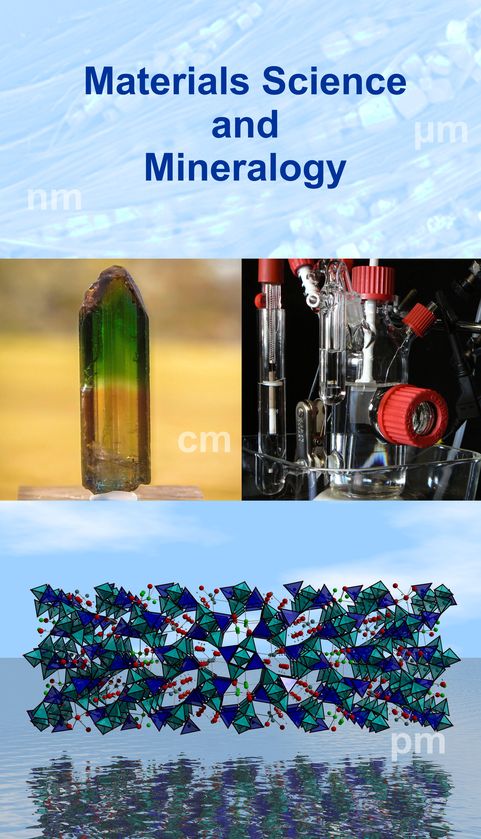Materials Science and Mineralogy
The ability to engineer matter at different length scales has become a necessity for further advances in the production and development of functional materials. The function and stability of nanomaterials is size-dependent, and very often depend on interfacial processes. The various working groups of the Materials Science and Mineralogy division investigate how these processes can influence the growth and function of synthetic, geo- and biogenic materials. This includes the influence of materials interfaces on their functional properties as well as their impact on the environment. Understanding such complex processes is crucial for the development and sustainable use of materials. This constitutes the core of modern materials research and is intensively studied here, in Salzburg.
We benefit from a very special and specific expertise in the field of Mineralogy and Crystallography, which can be applied to common Materials Science problems. The complex geological evolution of the earth has been the result of a very large number of mineralogical processes involving a variety of chemical elements. By understanding these physicochemical processes, Mineralogy can be used to make important discoveries in Materials Science. Inspired by the knowledge gained from these studies, we contribute every day to the advancement and development of functional materials. This can only be done through the interdisciplinary collaboration between chemists, physicists and mineralogists, which work together here, in Salzburg.
Full professor (Head)
Secretaries
Associate professors
- BERGER Thomas, Assoc. Prof. Dr.
- BOURRET Gilles, Assoc. Prof. Dr.
- DACHS Edgar, Ao.Univ.-Prof. Dr.
- REDHAMMER Günther, Assoc. Prof. Mag. Dr.
Technical staff
Researchers, Post-docs and PhD students
- AICHER Korbinian, MSc.
- BARTSCHMID Eva Theresa, BSc.
- BENISEK Artur, Mag.Dr.
- GEIGER Charles Arthur, Dr.
- NEIGE Ellie, Dipl.-Chem.
- PIASKOWSKI Joshua, MSc.
- RAZOUQ Hasan, MSc.
- WAGNER Reinhard, Mag.Dr.
- WHITMORE Lawrence, PhD.
Honorary professors and emeritus professors
- AMTHAUER Georg, O.Univ.-Prof. Dr. (emeritus since 01.10.2010)
- GRODZICKI Michael, Hon.Prof. Dr.
- PAVICEVIC Miodrag, Hon.-Prof. Dr.





